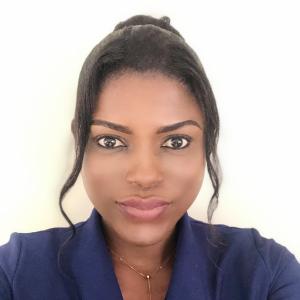Leaving everything you have labored for, and sometimes your loved ones, behind: taking nothing, and without a clue to your destination.
This is what over 100 million people have gone through as we write.
According to the UN Refugee Agency (UNHCR), at the end of 2022, this many number of people were forcibly displaced globally, a record number propelled by emerging conflict across Europe.
Furthermore, people fleeing armed conflict or persecution often face perilous and intolerable situations. They end up in another country and often face numerous challenges, including language barriers, cultural differences, limited access to education and healthcare, and discrimination. These challenges make it difficult for refugees’ inclusion, which is key to enabling refugees to rebuild their lives and contribute meaningfully to their host communities.
Stories of refugees who have successfully integrated into host communities have been told all over the world. One of such is 36-year-old Heros Djaone. Heros fled his home country Chad in 2008 to Cote dÍvoire after war broke out there. Then in 2011 he fled Cote dÍvoire, when post-election violence escalated to Ghana. Currently a refugee living in Krisan Camp, Heros struggled to find a job and when he did the conditions were terrible, he could hardly provide for his family, an experience that almost made him lose his mind. Heros later went into farming through support from the community to provide farmland to him. Today, Heros is doing well in farming and has been recognized as the 2021 Best Vegetable farmer for the Ellembelle District for his contribution to farming in his community and beyond. (https://bit.ly/3CkdT4F).
Thelma Ahamba, 31, also had to flee a war-ravaged Liberia in the early 1990s to Ghana for safety where she stayed in the camp at Buduburam. In her early days as a refugee, Thelma hawked bread on the streets to support her single mom make ends meet. She later became a beneficiary of the DAFI (Albert Einstein German Academic Refugee Initiative) Scholarship Programme and through that, completed a bachelor’s degree in marketing in 2017. The Programme offers qualified refugee students the possibility to earn an undergraduate degree in their country of asylum. Through the dedicated support of the German Government, UNHCR and private donors, the programme has supported over 15,000 young refugees to undertake tertiary studies since 1992.
Another Ivorian refugee at Egyiekrom Refugee Camp, Madam Kabra is also the trainer for a catering class, being run by UNHCR Implementing partner the Assemblies of God Relief and Development Services (AGREDS). (https://bit.ly/42EBloc).
These three stories demonstrate the positive impact of refugees’ inclusion. They are stories of hope and the power of commitment to refugees’ inclusion.
Heros received farming supplies which helped him provide for his family and ultimately won him the Best Vegetable farmer award. Thelma also became the first university graduate in her family through the DAFI scholarship and has returned to Liberia to work as a Data and Device Specialist. Madam Kabra is empowering young people in her community and has become the bread winner of her family.
“The issue of refugee inclusion is very pertinent. When individuals are provided with opportunities, they can optimize their full potentials. Whether its refugees seeking a chance to rebuild their lives, the presence of opportunities empowers individuals to strive for success. When given the chance, individuals can achieve remarkable accomplishments, benefitting both themselves and their communities”- Ms. Esther Kiragu, UNHCR Representative in Ghana.
Becoming a refugee is not by choice. The circumstances that lead people to flee their home country can happen to anyone at any time. Neither are refugees the crisis.
On World Refugee Day, the focus is on inclusion. As we honour refugees around the globe, celebrate the strength and courage of people who have been forced to flee their home country to escape conflict or persecution, let us also reflect on how best to include them in our communities and countries. Their resilience should spur us to give them the opportunity to remain a part of the communities in which they find themselves.
Driving the work of the UN to enable refugee inclusion, as told in the three stories above, is the fact that refugees, like all individuals, have fundamental human rights that should be respected and protected. Promoting their social integration, empowering them to be self-reliant and less dependent on aid, providing access to education, providing mental health support, and recognizing the cultural diversity of refugees contribute immensely to the successful inclusion of refugees in their host communities. In attaining this, the UNHCR Ghana, works closely with the Government of Ghana, through the Ghana Refugee Board, advising and supporting the government as needed to implement its state responsibility to protect refugees.
Collectively, let us give refugees hope away from home by including them in the social, economic and political life of the communities that hosts them.





